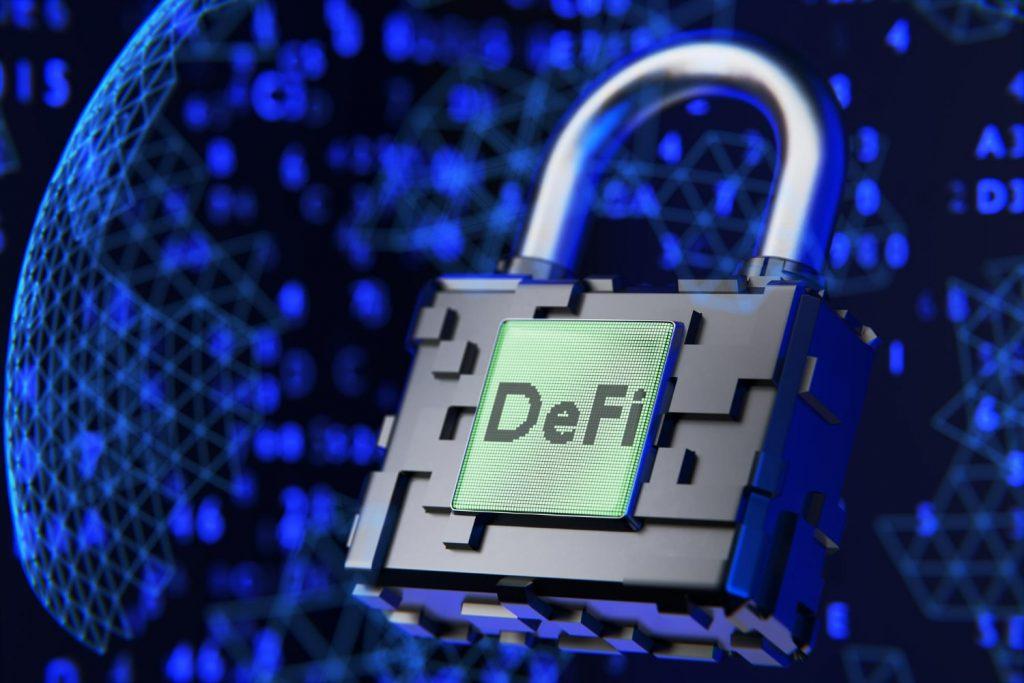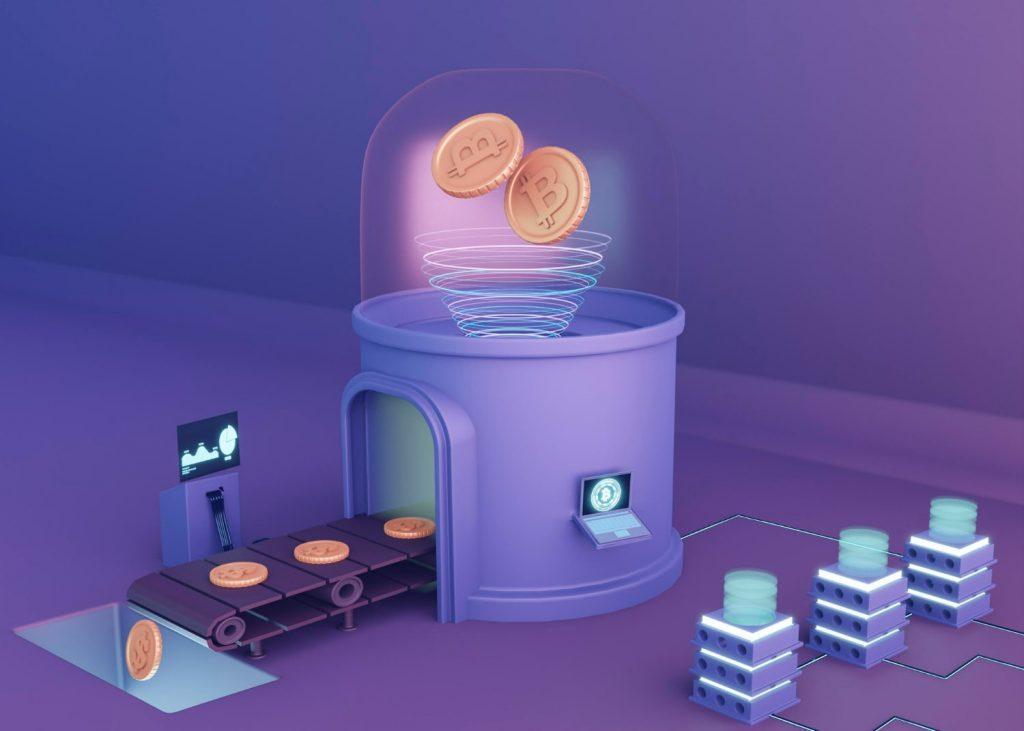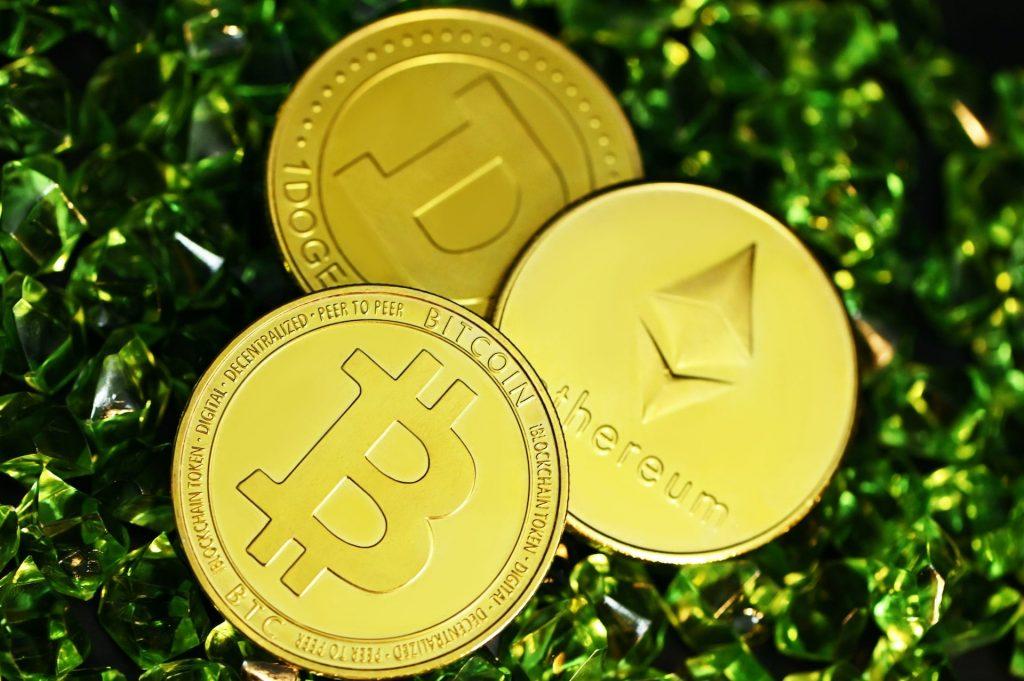Cryptocurrency grabbed the attention of the general public when Bitcoin’s price skyrocketed in late 2017. The value of Cryptocurrency has continued to rise and fall but its popularity has not declined!
The Cryptocurrency industry is booming with new projects and investors entering this space each day. However, with all the tech jargon used in the industry, it becomes difficult for a beginner to understand. This guide is aimed at explaining everything you want to know about Cryptocurrency!
What Is Cryptocurrency?
Cryptocurrency is a Digital Asset designed to work as a medium of exchange using cryptography to secure transactions and to control the creation of additional units of the currency. A defining feature of a cryptocurrency, and arguably its most endearing allure, is its organic nature; it is not issued by any central authority, rendering it’s theoretically immune to government interference or manipulation.
At its heart, cryptocurrency is essentially decentralized digital money intended for users over the internet. So, what was the first Cryptocurrency that paved the way for DeFi(Decentralized Finance)?
Bitcoin, (launched in 2009), was the first cryptocurrency and is still by far the most popular. Since then, Bitcoin and other cryptocurrencies such as Ethereum, Ripple, Dogecoin, and Shiba Inu have gained popularity as digital alternatives to government-issued money. For instance, El Salvador has passed the Bitcoin Law to provide Bitcoin with the status of legal tender.
What Is DeFi (Decentralized Finance)?

DeFi is a financial service on public blockchains, mainly Ethereum. This system eliminates the control of banks and institutions on money, financial products, and services. It has the potential to create a way more open, free, and fair financial market that can be accessed by anyone with an internet connection. So, how does it really work?
Similar to cryptocurrencies DeFi also uses Blockchain Technology. Blockchain refers to a secured and distributed database. Typically, “dApps” (Decentralized apps) are used to engage with DeFi, most of which run on the Ethereum blockchain currently.
Today, DeFi is used for lending and trading crypto assets and some are even keeping it as an alternative to a savings account to earn better interests and save for the future.
How Does Cryptocurrency Work?
Cryptocurrencies rely on a sort of public ledger technology known as Blockchain to store data and trace all transactions transmitted over the network.
What Is Blockchain Exactly?
A Blockchain is precisely what it sounds like, a virtual chain of blocks, each of which contains a set of transactions and other data. When a block is added to the chain, it becomes permanent, meaning that its data cannot be modified or erased.
How does Blockchain Works?
Data, nonce (a 32-bit whole number produced randomly when a block is formed), and hash (block header generated with the nonce) are the three components that make up each block. These elements along with Miners and Nodes work altogether to make the Blockchain work!
Nodes
Cryptocurrencies are administered by a network of voluntary contributors known as Nodes (computers, laptops, servers, and any type of other devices). The nodes in the network serve a range of functions, from storing a complete archive of all prior transactions to validating new transaction data.
Benefits Of Blockchain
Blockchain technology provides many benefits over traditional finance. This technology is tough to attack or manipulate since attackers must take control of more than half of the machines linked to the blockchain network. A coordinated assault might be prohibitively costly, depending on the size of the network. When the money necessary to attack established cryptocurrencies like bitcoin is compared to what the attacker stands to earn at the end of the day, such an operation would be financially unviable.
What Is Cryptocurrency Mining?

In simple terms, Cryptocurrency mining is the process that verifies and adds new transactions to the blockchain for a cryptocurrency. It is done by two methods i.e. Proof of Work and Proof of Stake.
Proof of work vs Proof of Stake
Proof of work and proof of stake are two distinct validation approaches used to validate transactions before they are added to a blockchain that rewards verifiers with more bitcoin. Cryptocurrencies generally utilize either proof of work or proof of stake to validate transactions.
Proof of work
Proof of work is a way of authenticating transactions on a blockchain. An algorithm generates a mathematical challenge that computers compete to solve.
Each participating computer, known as a “miner,” solves a mathematical challenge that aids in the verification of a set of transactions known as a block, which is subsequently added to the blockchain ledger. The first computer to successfully complete the task gets awarded a modest bitcoin sum for its work.
The competition to solve blockchain riddles may need significant computing power and electricity. In reality, this implies that miners may barely break even with the cryptocurrency they earn for confirming transactions after deducting the expenses of electricity and computer resources.
Proof of Stake
Some cryptocurrencies utilize a proof of stake verification approach to decrease the amount of electricity required to review transactions. The number of transactions any user may verify using proof of stake is limited by the amount of bitcoin they are prepared to “stake,” or temporarily lock up in a community safe, in exchange for the opportunity to participate in the process.
You can think of it almost like bank collateral. Everyone who invests in cryptocurrency is eligible to verify transactions. However, your chances of being picked grow with the amount you stake.
“Because proof of stake eliminates energy-intensive equation solving, it is far more efficient than proof of labor, enabling for speedier transaction verification/confirmation,” explains Anton Altement, an expert in the space.
If a stake owner (also known as a validator) is chosen to validate a fresh batch of transactions, they will be paid with bitcoin, perhaps in the amount of the block’s aggregate transaction fees. To deter fraud, if you are picked and verify incorrect transactions, you will lose a portion of the money you bet.
Cost To The Environment
You might not consider cryptocurrencies to be a particularly harmful sector to the environment. However, maintaining the blockchain demands a significant amount of energy.
As bitcoin tokens become scarcer and hence more valuable, more individuals use high-powered gear to mine, resulting in higher CO2 emissions.
Not only has the value of bitcoin increased in the last year but so has the amount of energy it needs. The cryptocurrency’s value has recently dropped after reaching a high of $50,000.
The latest interest from large Wall Street organizations, such as JPMorgan and Goldman Sachs, likely contributed to the currency’s growth in value.
The typical computer can no longer mine bitcoins now that over 18.5 million have been mined. Instead, mine now necessitates the use of specialized computer equipment capable of handling the intensive processing power required to obtain bitcoin today.
Bitcoin proponents claim that mining is increasingly being done with it as renewable energy becomes more affordable. The energy utilized is significantly less than that of other, more wasteful power uses.
Some cryptocurrencies employ a different type of blockchain with a lower environmental impact since it does not rely on the same ever-increasing amount of energy from miners.
What Gives Cryptocurrency Value?
The functionality of its underlying blockchain often determines the value of a cryptocurrency, yet there have been several occasions when social media excitement and other speculative factors have inflated values for example the several instances where Elon Musk caused chaos on the market with his tweets about Dogecoin and SHIBA INU.
- The coins of blockchains that are regarded to have a wide variety of utilities are typically more valued than those that do not. It all comes down to the currency’s demand relative to its supply and if the buyer is ready to pay more than the seller first paid for the coin.
- Notably, cryptocurrencies prefer a deflationary system in which the quantity of new coins supplied into the market is predictable and steadily decreases over time.
Another crucial aspect of many cryptocurrencies is that the total amount of coins that may ever exist is frequently fixed. For example, only 21 million bitcoins will be generated, with more than 18 million presently in circulation. This deflationary-based system is diametrically opposed to traditional banking, in which governments have the authority to issue a limitless quantity of fiat notes, thus unwittingly depreciating their currencies.
Are Cryptocurrencies Secure?

Blockchain technology is commonly used to create cryptocurrencies. It’s a rather intricate, technical procedure, but the end result is a digital ledger of bitcoin transactions that hackers find difficult to manipulate.
Furthermore, transactions need a two-factor authentication procedure. For example, to begin a transaction, you may be requested to enter a login and password. Then, you may be required to provide an authentication number delivered to your personal mobile phone through text message.
While security measures are in place, this does not mean that cryptocurrencies are impenetrable. Several high-dollar hacks have severely harmed bitcoin start-ups. Hackers stole $534 million from Coincheck and $195 million from BitGrail, making them two of the largest cryptocurrency attacks of 2018.
In contrast to government-backed money, the value of virtual currencies is totally determined by supply and demand. This might result in huge fluctuations that result in large gains or losses for investors. Furthermore, bitcoin investments are subject to significantly less regulatory oversight than traditional financial instruments such as equities, bonds, and mutual funds.
What is The Use of Cryptocurrency?
Initially, Bitcoin was promoted as a viable replacement for fiat money on the grounds that it is portable, censorship-resistant, internationally available, and a cost-effective way of conducting cross-border transactions.
However, with the exception of digital assets tied to fiat currencies, the value of cryptocurrencies has not been able to reproduce the degree of stability required to function successfully as a means of exchange.
- As a result, most cryptocurrency holders have focused on the financial potential of cryptocurrencies, spawning the speculative side of the crypto market. Investors appear to be more concerned with the chance that the price of a cryptocurrency may grow in the future than with whether cryptocurrencies can be used to purchase goods and services; therefore, crypto is now primarily considered an investment.
- You can use cryptocurrencies to make purchases, but it is not yet a widely accepted means of payment. Although it is far from the standard, a few online merchants, such as Overstock.com, take Bitcoin.
- You can work around existing constraints by trading cryptocurrencies for gift cards until cryptocurrency becomes more generally recognized. For example, at eGifter, you can use Bitcoin to purchase gift cards from Dunkin Donuts, Target, Apple, and a few more businesses and restaurants.
- You may put bitcoin onto a debit card and use it to make transactions. You may sign up for the BitPay card, a debit card that converts crypto assets into dollars for purchase, in the United States. Still, there are costs associated with ordering the card and using it for ATM withdrawals.
- You may also utilize cryptocurrency as an alternative investment to equities and bonds. “Bitcoin, the most well-known crypto, is a safe, decentralized currency that has become a store of value like gold,” explains David Zeiler, a cryptocurrency specialist and assistant editor for the financial news site Money Morning. “Some people even call it ‘digital gold.’”
What Is A Cryptocurrency Wallet?
Cryptocurrency wallets are locations where traders keep the secure digital codes required to communicate with a blockchain. Despite what their name suggests, they do not actively store your bitcoins.
Crypto wallets must connect with the blockchain to locate the cryptocurrency linked with your address. In truth, crypto wallets are more like ledgers than wallets since they serve as an owner’s identification and account on a blockchain network, as well as access to transaction history.
You are not transferring any coins when someone gives bitcoin, ether, dogecoin, or any other sort of digital money to your crypto wallet. What they’re doing is transferring ownership to your wallet’s address, which means they’re acknowledging that the cryptocurrency on the blockchain no longer remains at their address, but yours. To do this, two digital codes are required: a public key and a private key.
A public key is a string of letters and numbers automatically produced by the crypto wallet provider. A private key is another string of numbers and characters that only the wallet’s owner should know.
Consider a cryptocurrency wallet to be similar to an email account. You must give folks your email address in order to get emails. In the case of crypto wallets, this is your public key, which you must disclose to others in order to participate in any blockchain transaction.
However, you would never give someone your email account password. For crypto wallets, that password is comparable to your private key for crypto wallets, which should never be shared with anyone else.
Types Of Cryptocurrency Wallets

Crypto wallets are divided into two types: hot wallets and cold wallets. The primary distinction is that hot wallets are always linked to the internet, whereas cold wallets are kept offline.
Hot Wallets
Hot wallets are digital instruments that cannot be disconnected from the internet. They are bits of software that may be used from your phone or desktop computer to monitor and trade your currencies. Some hot wallets may also be accessible through a browser, allowing you to utilize them on a number of devices. The most significant advantage of hot wallets is their portability.
Your public and private keys are kept and encrypted on your wallet’s app or website, so you can access them from anywhere with an internet connection unless they’re restricted to a certain device. Because of their ease of use, they are great for people who trade frequently and intend to spend bitcoins.
Because hot wallets are continually available online, they are also more vulnerable to hackers. Hackers can hack into the system by exploiting hidden software weaknesses that support your wallet or by using malware. This is especially problematic for wallets hosted by crypto exchanges, larger targets for crypto criminals overall.
Types of Hot Wallets
In general, all software wallets are included in the top crypto wallet types. Mobile wallets, online wallets, and desktop wallets are the most frequent forms of hot wallets.
Desktop Wallet
Downloading a program to your desktop or laptop is required for desktop wallets. The program will aid in the creation of a data file including the users’ keys. Users must additionally generate a password in order to access the keys. Desktop wallets provide you custody of your key, but there is a danger of physical damage or malware/virus infection.
Web Wallets
Web wallets are one of the most well-known forms of crypto wallets in the hot wallets category. Web wallets may be accessed via a web browser without the need to download any special software or applications.
Web wallets provide access to crypto assets from any location using your password, a device, and a web browser via browser access. The website would control the keys to your crypto assets in the event of online wallets. Alternatives, such as multi-sig wallets, provide consumers with some control over their crypto wallets.
Mobile Wallets
Mobile wallets, which have capabilities comparable to desktop wallets, are another important crypto wallet category among hot wallets. You must install a mobile application on your phone that will function as a hot wallet. Mobile wallets provide greater freedom for trading cash, but they also pose certain security dangers.
Cold Wallets
Cold wallets save your digital keys offline on hardware or a sheet of paper. Hardware wallets are often in the form of a USB drive that allows you to purchase, sell, and exchange cryptocurrency while connected to a computer. Your keys may be available via print-out QR codes, printed on a sheet of paper, or etched on another material, such as metal, using “paper” wallets.
Cold storage wallets are purposefully designed to be difficult to hack. Hackers cannot remotely get the wallet owner’s keys unless the wallet owner falls victim to a phishing attempt. A hardware wallet, for example, would need a burglar first to steal the USB device used to access your crypto and then crack its password.
Types of Cold wallets
The varieties in the cold wallet category are the next key point of discussion about crypto wallet types. Cold wallets are classified into two types: paper wallets and hardware wallets.
Paper Wallets
When it comes to understanding paper wallets as one of the sorts of crypto wallets, the name says it all. Paper wallets are nothing more than tangible scraps of paper. The document must contain all of the information required to access the bitcoin. Cold wallets, in general, provide increased security.
However, in the case of paper wallets, the same cannot be said. If you misplace the paper document, you risk losing the crypto assets in your wallet. Furthermore, paper wallets have the disadvantage of being limited in distributing partial money easily. Furthermore, the time-consuming nature of paper wallets transactions offers significant barriers to their utilization.
Hardware Wallets
On the other hand, Hardware wallets properly define the ideas of cold wallet design. They provide security by preventing private keys from being exposed online. Hardware wallets, which function similarly to flash drives, save private keys on a physical device in an offline context.
Hardware wallets are one of the most user-friendly crypto wallet kinds in cold wallets since they can be simply connected to PCs or any other device through a USB drive.
The private key does not leave the device even while it is linked to the internet. The gadget would ask for the transaction details and validate the data, completing the transaction. The transaction details are then sent to the internet network, where they are logged. Trezor, Ledger, and other prominent hardware wallets in use today include Trezor, Ledger, and many more from other manufacturers.
How To Choose A Crypto Wallet?

When shopping for a cryptocurrency wallet, these questions are critical for deciding:
How frequently are you going to trade?
Will you be trading cryptocurrencies on a regular basis or only on occasion? Because of their quickness and convenience, hot wallets are preferable for active traders. On the other hand, active traders may benefit from a cold wallet by utilizing it as a form of savings account, storing the majority of their currency there.
What do you wish to exchange?
Do you want to buy and store Bitcoin, or are you more interested in other forms of cryptocurrency, such as altcoins and stablecoins? The crypto wallet you choose should support the currencies you want to trade and, ideally, other cryptocurrencies you might want to change in the future.
What are you willing to spend?
Do you intend to amass big sums of cryptocurrency in the future? Hardware wallets are great for this type of activity; however, unlike hot wallets (which are usually free), they demand an initial deposit to possess the wallet. Some hot wallets charge higher crypto trading fees in exchange for faster transactions or more functionality.
What features do you require in a wallet?
Do you intend to do anything with cryptocurrency other than trade it? Traders who want to make money passively with their cryptocurrency, for example, should seek wallets that support crypto lending, staking, and deposits.
Some of The Popular Cryptocurrencies
Bitcoin
Bitcoin was first introduced in 2009. The world’s first successful cryptocurrency was created by “Satoshi Nakamoto” (real identity and origin unknown). Bitcoin is a decentralized digital currency that users may purchase, sell and exchange without the involvement of a middleman such as a bank. There is a limited quantity; only 21 million bitcoins may be generated.
The Bitcoin blockchain is a complete record of the network’s history that has been authenticated by Bitcoin software users (nodes). This means security. Unlike most digital data, bitcoins cannot be readily copied and manipulated. Bitcoins are utilized as money because they are rare, divisible, and transferrable.
Ethereum
Ethereum was founded in 2015. Vitalik Buterin designed it.
The decentralized Ethereum network enables the creation and execution of apps, smart contracts, and other network transactions. In contrast to Bitcoin, the Ethereum network may conduct calculations as part of the mining process. Ether is a digital currency used in financial transactions, as an investment, and as a store of value. Ethereum is the blockchain network where Ether is stored and traded.
Dogecoin
Dogecoin was first introduced in 2013 by Jackson Palmer and then by Billy Markus.
Dogecoin, like bitcoin and Ethereum, is a decentralized cryptocurrency. The coin began as a joke to become a satirical take on bitcoin based on a famous dog meme. Unlike Bitcoin, which was supposed to be scarce, Dogecoin was designed to have a large number of coins. There is around 130 billion DOGE. Every minute, miners create approximately 10,000.
That large sum is a critical component of the concept. Dogecoin was established as a low-stakes alternative to Bitcoin. When it first went up in late 2013, it quickly drew a sizable internet following.
Even now, it’s religiously followed by crypto investors as Elon musk has constantly supported it, even going as far as terming himself the ‘ Dogefather.’
How to Buy Cryptocurrencies?

You may be wondering how to purchase cryptocurrency safely. Typically, three stages are involved. They are as follows:
Step 1: Selecting a Platform
The first step is to decide on a platform. In general, you have the option of using a standard broker or a specialist cryptocurrency exchange:
Traditional brokers:
These are online brokers who provide services for purchasing and selling cryptocurrencies as well as other financial assets such as stocks, bonds, and ETFs. These platforms often have lower trading fees but fewer crypto capabilities.
Exchanges of cryptocurrencies There are several cryptocurrency exchanges to select from, each with its own set of cryptocurrencies, wallet storage, interest-bearing account choices, and other features. Asset-based fees are charged by several exchanges.
Consider which cryptocurrencies are available, the fees they charge, their security features, storage and withdrawal choices, and any instructional materials when evaluating different platforms.
Step 2: Adding money to your account
After you’ve decided on a platform, the following step is to fund your account so you can start trading. Most crypto exchanges enable users to buy crypto with fiat (government-issued) currencies like the US dollar, British pound, or Euro using their debit or credit cards — however, this varies by platform.
Credit card purchases of cryptocurrency are deemed dangerous, and some exchanges do not accept them. This is due to the extreme volatility of cryptocurrencies, and it is not wise to risk getting into debt – or perhaps paying hefty credit card transaction fees – for some assets.
Some platforms will allow ACH and wire transactions as well. The payment methods accepted and the time required for deposits and withdrawals vary for each platform. Similarly, the time it takes for deposits to clear varies depending on the payment type.
Step 3: Making A Purchase
You can place an order using your broker’s online or mobile platform or exchange. If you wish to acquire cryptocurrencies, click “buy,” then pick the order type, input the number of coins you want to buy, and complete the order. The identical procedure is used for “sell” orders.
There are alternative methods to invest in cryptocurrency. Payment systems such as PayPal, Cash App, and Venmo allow customers to purchase, trade, or store cryptocurrencies.
Cryptocurrency Institutional Adoption
In 2021, mainstream corporations from a variety of industries expressed interest in — and, in some cases, invested in — cryptocurrencies and blockchain. AMC started with Bitcoin payments by the end of 2021. PayPal and Square are also banking on cryptocurrency by enabling consumers to buy it on their platforms. Tesla continues to waver on accepting Bitcoin payments, despite the fact that the corporation has billions of dollars in crypto assets. Experts believe that this level of buy-in will continue to rise.
Some analysts believe that larger, worldwide organizations will accelerate adoption even more in the second part of this year. “What we’re seeing is institutions moving into crypto, whether it’s Amazon or the large banks,” Weiss, A Crypto expert says about Institutional adoption. A major shop, such as Amazon, might “start a chain reaction of others embracing it” and “provide a lot of legitimacy.”
Indeed, Amazon recently fueled concerns that it is making strides in this direction by publishing a job listing for a “digital currency and blockchain product lead.” Walmart is also looking for a cryptocurrency specialist to supervise its blockchain strategy.
Crypto ETF Approval
On this front, there has already been a significant breakthrough, with the first Bitcoin ETF debuting on the New York Stock Exchange in October. The development provides a new and more traditional method of investing in cryptocurrency. The BITO Bitcoin ETF enables investors to purchase cryptocurrencies directly via standard investing brokerages with whom they may already have accounts, such as Fidelity or Vanguard.
For the unversed, A cryptocurrency exchange-traded fund (ETF) is a fund that is made up entirely of cryptocurrencies. A cryptocurrency ETF, unlike other ETFs, monitors the price of one or more digital tokens rather than an index or a basket of assets. The share price of cryptocurrency ETFs swings on a daily basis based on investor sales and purchases.
“We do it in the equities market, we do it in the bond market; people might want it here,” SEC Chairman Gary Gensler, said last summer at the Aspen Security Forum.
However, some argue that the BITO ETF is insufficient since, while it is tied to Bitcoin, it does not directly own the cryptocurrency.
Instead, the fund invests in Bitcoin futures contracts. While Bitcoin futures follow the overall patterns of the actual cryptocurrency, analysts believe they may not accurately mirror the price of Bitcoin. For the time being, investors must continue to wait for an ETF that owns Bitcoin directly.
The SEC has considered ETF clearance several times in recent years, but BITO is the first to receive permission.
How To Get Into Cryptocurrency

If you want to invest in cryptocurrencies, the following suggestions might help you make informed decisions.
- Learn about cryptocurrency exchanges before you investBefore you invest, do some research on cryptocurrency exchanges. There are around 500 exchanges to select from, according to estimates. Before proceeding, conduct research, read reviews, and consult with more experienced investors.
- Understand how to store your digital currencyIf you purchase cryptocurrencies, you must store them. You can save it in a digital wallet or on an exchange. While there are several types of wallets, each has its own set of advantages, technological needs, and security. You should examine your storage options before investing, just as you would with exchanges.
- Diversify your investmentsDiversification is essential in any smart investment plan, and this is especially true when it comes to bitcoin. Don’t put all of your money into Bitcoin, for example, simply because the word is familiar to you. There are dozens of possibilities, and it is best to diversify your investments across many currencies.
- Prepare for volatilityBecause the cryptocurrency market is very volatile, you can expect ups and downs. Prices will fluctuate dramatically.
The Future Of Cryptocurrency
Even while these digital currencies continue to change on a daily basis, there is still plenty to learn about them. One of the major concerns is whether the cryptocurrency sector will completely replace the existing traditional financial institutions.
The bitcoin market has changed dramatically in the previous 18 months. Its expansion has been quicker than ever, yet its future has never been more uncertain.
With more time on their hands and fewer options for spending their money, many customers have ventured into cryptocurrency trading for the first time during the epidemic.
Every day customers, many of whom had no idea what blockchain was, followed the viral trail of Reddit posts in which talk of “stonks” and “diamond hands” drove thousands to collectively inflate the price of some goods “to the moon.” This spawned a whole new category of “meme stocks,” reviving dormant firms like GameStop and AMC while rocking the market to its core.
Analysts predict that the global cryptocurrency market will more than threefold by 2030, reaching roughly $5 billion in value. Investors, businesses, and brands can’t ignore the surging wave of cryptocurrency for long, whether they want to or not.
But crypto doesn’t appear to be immune to contradictions. Investors believe in regulation but are concerned about many of the consequences of regulation. They care about the environment and cryptocurrency mining has a significant carbon impact.
Cryptocurrency has always been volatile, both in terms of price and in terms of customer perception. Despite the current boom, the future of bitcoin remains unknown.
This is a period of ambiguities for the typical investor, government authorities, and those striving to make crypto greener. If there is one certainty, it is that the market in five years will be just as unrecognizable to us as it was five years ago.






